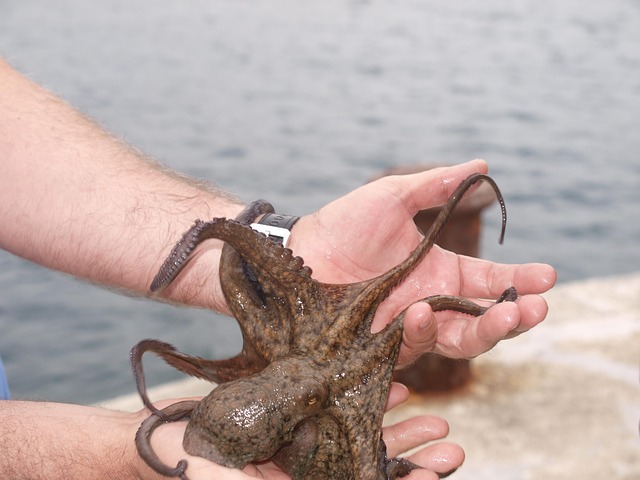Unveiling the Enigmatic Lives of Octopuses: The Pet of the Future?
Octopuses, the eight-legged marine creatures, have long been a subject of fascination and awe. From ancient marine folklore to modern-day science fiction, octopuses have captured our imaginations with their peculiar alien-like abilities. Recently, these deep-sea creatures have begun to make their way into our homes as pets, presenting a new challenge and opportunity for animal enthusiasts. This article dives deep into the world of pet octopuses, their unique biology, and the potential they hold for pet ownership in the future.

Octopuses: A Brief History
The octopus belongs to the cephalopod class, which includes squid, cuttlefish, and nautiluses. These marine creatures date back more than 500 million years, making them some of the oldest species on Earth. Over the ages, octopuses have developed some of the most incredible adaptations in the animal kingdom, such as their ability to change color and texture, their complex nervous systems, and their renowned problem-solving skills.
Current Perspectives on Octopuses as Pets
In recent years, there has been a growing trend of keeping octopuses as pets. Species like the Pacific octopus and the dwarf octopus are particularly popular due to their relatively small size and adaptability. However, owning an octopus as a pet is not a decision to be taken lightly. They require specific conditions such as a large, secure tank with plenty of hiding spots, a diet of fresh seafood, and a significant investment of time and resources.
The Market for Pet Octopuses
While still a niche market, the demand for pet octopuses is growing steadily. The average cost of a pet octopus ranges from $30 to $1000, depending on the species and its rarity. However, the initial purchase price is just a fraction of the overall cost. The setup and maintenance of a suitable octopus habitat can run into thousands of dollars, making octopus ownership a significant investment.
The Science of Octopuses
What makes octopuses truly remarkable are their biological and cognitive abilities. They possess the largest brain of any invertebrate, which enables them to exhibit complex behaviors such as tool use, problem-solving, and even rudimentary forms of play. This high level of intelligence, combined with their unique physiological adaptations, makes octopuses fascinating subjects for scientific study.
The Future of Octopus Ownership
As our understanding of octopuses deepens, we may see an increasing trend of these intelligent creatures becoming pets. However, this raises important ethical and conservation issues. Octopuses are solitary, highly intelligent creatures with specific needs that can be challenging to meet in captivity. Furthermore, the increasing demand for pet octopuses could potentially lead to overharvesting and disruption of marine ecosystems.
In conclusion, octopuses are some of the most fascinating creatures in the animal kingdom, possessing unique biological and cognitive skills. As they make their way into our homes as pets, we are challenged to fully understand and cater to their needs. The future of octopus ownership holds exciting possibilities, but it also necessitates responsible pet ownership and sustainable practices to ensure the conservation of these remarkable creatures.




